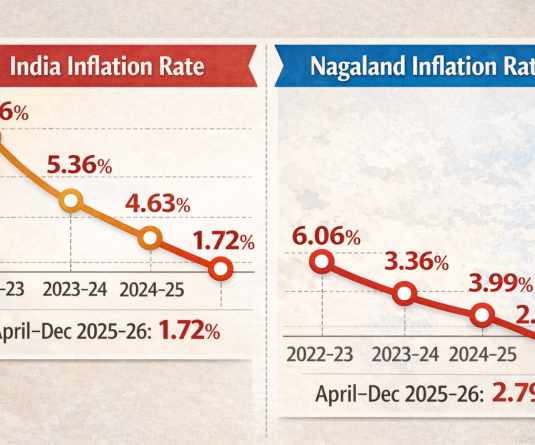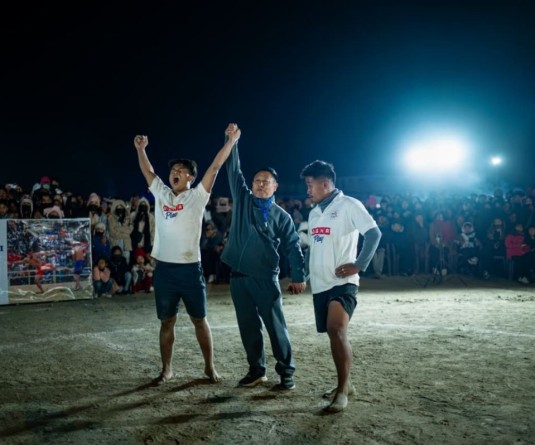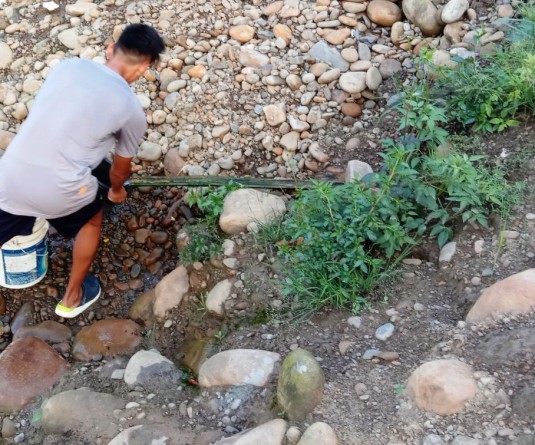A section of village elders interacting with The Morung Express on December 10 in Oting village. (Morung Photo)
.jpg)
Kanili Kiho
Oting | December 12
The wounds of Oting are still fresh, as the grief stricken parents of the innocent victims struggle on, trying to cope with a tragedy, a pain, a loss profoundly hard to fathom.
The woeful laments of families outside the gates of Oting are heard, yearning to be with the bereaved, yet left wanting courage to step into the village and realise that the dear ones will not be there to greet them. “I don’t know how I am going to face that moment, after this ordeal. Many of my friends and relatives were killed on that night,” said Mantong over the phone. He is currently in Dimapur watching over his injured younger brother at the Christian Institute of Health Science & Research (CIHSR).
“The faces of our innocent sons will haunt us forever. We will never forget them,” deputy Angh (village chief), Chingwang said, while adding that the distraught parents haven’t been eating or sleeping. “How long will we stay this way?”
Chingwang said that in the past, the sight of security personnel used to make them feel safe. “Now, even the mere mention of them makes us angry.” As the citizens declared earlier through a press release, he said, “from now, neither the Indian Army nor any faction of Naga political groups will be allowed to enter Oting.”
Sitting among a group of elders at the village Morung on Friday evening, the deputy Angh noted that the entire incident has garnered media attention from across the country and even the world. He said that countless interviews have been taken of the victims’ families, village elders and so many others. “But it is mostly our people, our local media, that are a little more sensitive and empathetic to our grief,” he said, attributing the empathy to their shared lived experiences.
Adding to this, he said that while Oting has recently brought attention to the AFSPA and all the crimes committed under it, people in Nagaland and most parts of Northeast have lived through the ordeal at some point of time.
According to Nokyem, the Pastor of Oting Baptist Church, as Christians, the church always prays for all the citizens of the country and for peace in every part of the nation. “However, what happened on December 4 has left us shattered,” he said.
In our trauma, we cannot help but ask the Indian Army what the rife was between them and Oting village, the pastor said, while maintaining that the people of Oting have been cooperating with the Army since the beginning.
Supporting his statement, the village council members brought out a commendation certificate awarded by the then Governor of Assam, Saiyid Fazl Ali to the people of Oting village, “in appreciation of the very special merit and zeal displayed by them in the discharge of the duties entrusted to them,” on August 15, 1958.
The deputy Angh, meanwhile, said that the December 4 incident has made it look like “AFSPA has been created for the Oting public, a rulebook only for our people.” All this while there is agreed ceasefire in the State, he observed.
Chingwang said that it was not only Nagaland but also the whole of Northeast that has been shaken because of the Oting killings. “We feel betrayed by the Indian Army. We are really hurt. And there is new cry to have AFSPA repealed.”
However, he also pointed out that demanding for repeal of the Act alone will not do. “In order to repeal this Act, what should we do? We should earnestly think about this,” he stated.
“The whole of Northeast must stand together now. This is the right time to bring down this wrong law.”
A council member said that the AFSPA was formulated by the British to oppress the Indians. However, the Indian government has forgotten to do away with this law and instead, kept it to oppress its own people, particularly in the Northeast, he added.
He further put across that Nagaland had not even achieved statehood when the Act was enacted in 1958, so, there was no question of AFSPA in Nagaland.
As a civilized nation, the Pastor asserted that the Indian government must do away with such a law that allows security forces personnel immunity from prosecution for killing innocent civilians.
“We do not know what the outcome of all these media people coming to our village, the SIT investigation, the call to repeal AFSPA, etc will bring. But this part of Oting’s history will never be forgotten. This will pass on to generations.”





